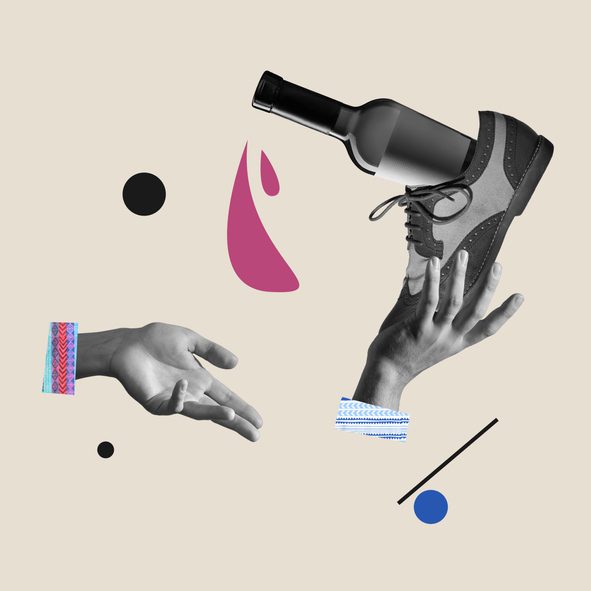We all have addictions of some kind. When I refer to addiction, I am using that word loosely to mean any kind of compulsive behavior. Compulsive behavior seems to be part of the human condition. To be addicted to something means you don’t have the full power of choice, but the compulsion hijacks the ability to make a choice. It is unconscious, but we give that power to choose over to the addiction, so that we are relieved of making a choice and of taking responsibility for those choices. Regardless though, we suffer the consequences of giving away so much power. It may seem obvious to some, but why would anyone give up their power of choice and turn it over to a substance/behavior? What would cause us to do so, even unconsciously? Fear. Fear drives a lot of unconscious behavior because the root motivation for fear is survival. Addiction then, is a protection against the fear of not surviving.
Trauma
In my view, one of the main causes of addiction and addictive behaviors is trauma and stress. Trauma interrupts the natural development of individuals warping their senses and distorting their emotional responses. Fear of abandonment, being unwanted, undesirable, feeling like a mistake, broken and damaged: all these create undesirable feelings. And beyond those feelings are the root causes of our pain, the truth of our suffering. To mitigate these truths and emotional upheavals we find ourselves falling asleep to our own internal processes and by becoming unconscious we give up our power to choose and allow the addiction to make our choices for us.
There are two main types of addiction as I understand them. Substance addiction and behavioral addiction. Substances include tobacco, alcohol, drugs as well as other substances that are more difficult to abstained from, including sugar, carbs, and junk food and so on. There are many programs designed to help people overcome their substance addictions but there are fewer options for behavioral addictions.
Behavioral Addictions include:
Video gaming
Social Media
Shopping
Gambling
Pornography
Sex and Drama
Exercise
Workaholic
Complaining
Relationship to Food
Food is a big source of addiction for many people, and it is tricky because everyone must eat and so abstinence is not an option. Which is a good thing in my view, because it requires a deeper exploration into the causes and subconscious motivators that drive all addictive behaviors. In fact, there are many things we can become addicted to that we can’t simply avoid. So instead we manage the behaviors and patterns so that we can slowly regain our power and authority.
Spontaneity and Compulsion
An addiction is among other things an attempt at spontaneity. To be free to act without constraints or controls is very appealing. A compulsive behavior can be a substitute for spontaneous action because it feels like it comes from a desire within. You really believe you want to do the compulsive behavior; you really think you want that cigarette or drink or to shop online or eat that bagel. Some part of you has confused desire with compulsion. Children are spontaneous and act according to pure desire. But through the process of maturation and being parented the child is trained to become compulsive and then you factor in trauma and it reinforces addictive patterns. Desire becomes compulsion by allowing an external force, to motivate your behavior. That could be in the form of reward and punishment, fear of abandonment and/or humiliation. In my view, we are trained to respond compulsively to outside stimuli. This is fine when it works to create cooperative societies but on the individual level it can create addictive patterns, especially when there is trauma present. Working through the trauma using good therapeutic support is crucial to managing and, in some cases, totally resolving addictive behavior.
Love is a Remedy
It may seem strange to say but you can love your addiction into resolution. Willpower and resistance are temporary fixes for addiction. They can help you create space around your ability to make choices, give you the opportunity to cultivate awareness but this will not ultimately free you from addictive patterns. You must come into a loving relationship with that which is controlling you. In order to do this, you must start with awareness and develop your awareness around the compulsive behavior without trying to change it. This awareness is key. Mindfulness as it is called in Buddhism, will soften your reactions and create an environment where you can begin the healing process. The worst thing you can do with an addiction is to use force to control it. Force drives the behavior deeper into the unconscious while loving attention and gentle compassion draw it out like a scared rabbit emerging from a hole in the ground. Once you have the addiction clearly in your sights you can begin the process of understanding all the components, the compulsions, the emotional states associated with each one. Take care of yourself during this process. You don’t will the addiction away but rather the addiction will let go of you when you fully understand and forgive it, so to speak. When you love something, it responds positively. When you love something, you want to understand it and communicate with it. You don’t want to force it or control it. Learning to manage your addictions with loving care and attention will ultimately lead to healing them.

